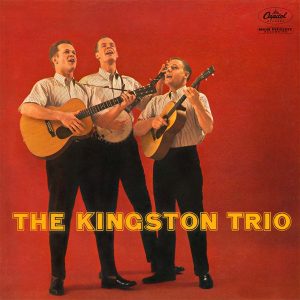The Police may have formed during punk’s Year Zero, 1977, but with Sting at the helm they soon transcended the genre’s three-chord limitations. By the time the trio called it a day, in the mid-80s, the group had introduced a far richer vocabulary to the new wave scene – notably reggae inflections, filtered through Sting’s pop nous – and become global megastars in the process.
Sting barely paused for breath between the dissolution of The Police and the establishing of his own solo career. With the Synchronicity tour winding down in March 1984, he wasted no time in entering the studio with a core six-piece including multi-instrumental fusion percussionist Omar Hakim, bassist (and later Rolling Stones mainstay) Darryl Jones, and post-bop jazz icon Branford Marsalis. With a further 15 musicians on call – among them British reggae icon Eddy Grant and a host of vocalists – it was clear from the off that Sting was poised to make his biggest artistic statement yet.
When The Dream Of The Blue Turtles emerged, on June 1, 1985, it ushered in a six-year period during which Sting produced ever-ambitious pop music whose thematic focus matched the grandiosity of the music. Bookended by extended meditations on love and mortality, the years 1985-91 chart a remarkable artistic progression.
The Dream Of The Blue Turtles, which comfortably hit No.3 in the UK and No.2 in the US, made its intentions clear from the start, with “If You Love Somebody Set Them Free” and “Love Is The Seventh Wave” not only providing the confident one-two punch that opened the album, but also emerging as the album’s first two single releases. The latter sees him working in reggae territory familiar to Police fans, but arguably more confidently than before; though categorizing the world’s ills, he asserts that love is “a deeper wave” than all, in a song that ultimately emerges as Sting’s own kind of “One Love.”
It’s a fitting message, given that “Russians” follows hot on its heels. Here Sting observes a “growing feeling of hysteria” sweeping the globe and asserts that “there’s no such thing as a winnable war” on a song that continues to feel all too relevant, decades later. (One listen to “We Work The Black Seam” yields the same conclusion.)
Though Sting’s lyrics often deal with hefty subjects, the musicianship soars, allowing songs to breathe and ensuring that the album doesn’t struggle underneath its own weight. Almost out of nowhere, “Shadows In The Rain” opens with one of the band shouting out for the key, though Sting and co blast forth regardless – the former unleashing one of the most impassioned vocal turns on the album, while the ensemble swings like a batter fresh from the dugout. At a mere 1.18, the instrumental title track, too, gives the group change to flex its chops, revealing that a lighter mood could also pervade the studio.
Released a mere two years later, … Nothing Like The Sun built upon its predecessor in every way. Marsalis remained on hand, while the likes of Eric Clapton, Mark Knopfler, Miles Davis arranger Gil Evans, and jazz drummer Manu Katché ensured that Sting’s ever-ambitious songwriting was ably brought to life. By now he made it seem so easy: even today the seams are invisible as pop hooks weave through the jazzier excursions carried over from … Blue Turtles, while world music rhythms underpin many of the songs. Though it contained the evocative single “Englishman In New York,” the album ultimately worked best as a mood piece unto itself, its 12 tracks flowing together with deceptive ease.
Also deceptive is … The Sun’s power. Its sinuous grooves may initially seem unobtrusive, but, particularly on the likes of “The Lazarus Heart” and “History Will Teach Us Nothing,” there hide naggingly infectious melodies that cycle back round when you least expect them. Meanwhile, in its thoughtful seven minutes, “They Dance Alone” shifts from a haunting, emotive meditation on death into a carnivalesque outro which in lesser hands would seem tacked on, but here is executed with ease.
That song, in particular, points the way towards The Soul Cages, an album that arguably remains the apogee of this period in Sting’s career. Released on January 17, 1991 in the UK, it topped the charts at home while nestling at No.2 in the States; its release might have marked one of the longest gaps between Sting solo albums, but the precision craftsmanship on display also singles The Soul Cages out as one of his most accomplished works.
With a smaller ensemble than before (Marsalis and Katché resumed their crucial roles, augmented by percussion and wind instruments), Sting focused on the loss of his father, turning a deeply personal experience into a universally resonant meditation on death. Fittingly, it is at once both the grandest statement at this point in his career, and the most intimately revealing; Sting’s knack for storytelling in song also emerges, with opener “Island Of Souls,” in particular, evoking the environment he grew up in, while also planting the seed for his later project, 2014’s The Last Ship.
Sting would go on to release a further three albums throughout the 90s – Ten Summoner’s Tales, Mercury Falling, and Brand New Day – a period during which he would continue to focus on his songcraft. Having, during this first stage of his solo career, pushed his ambitions to ever further extremes, Sting was ready to enter a new phase, resulting in a further swathe of transatlantic success with albums that would increasingly celebrate Sting’s precision songwriting and witness him holding his own between the twin threats of Britpop in the UK and grunge in the US.
Listen to the best of Sting on Apple Music and Spotify.




